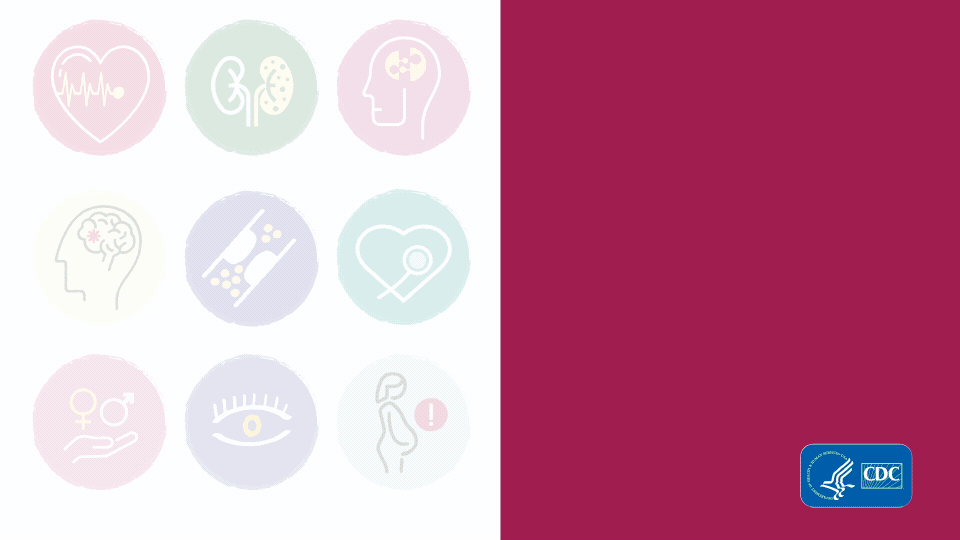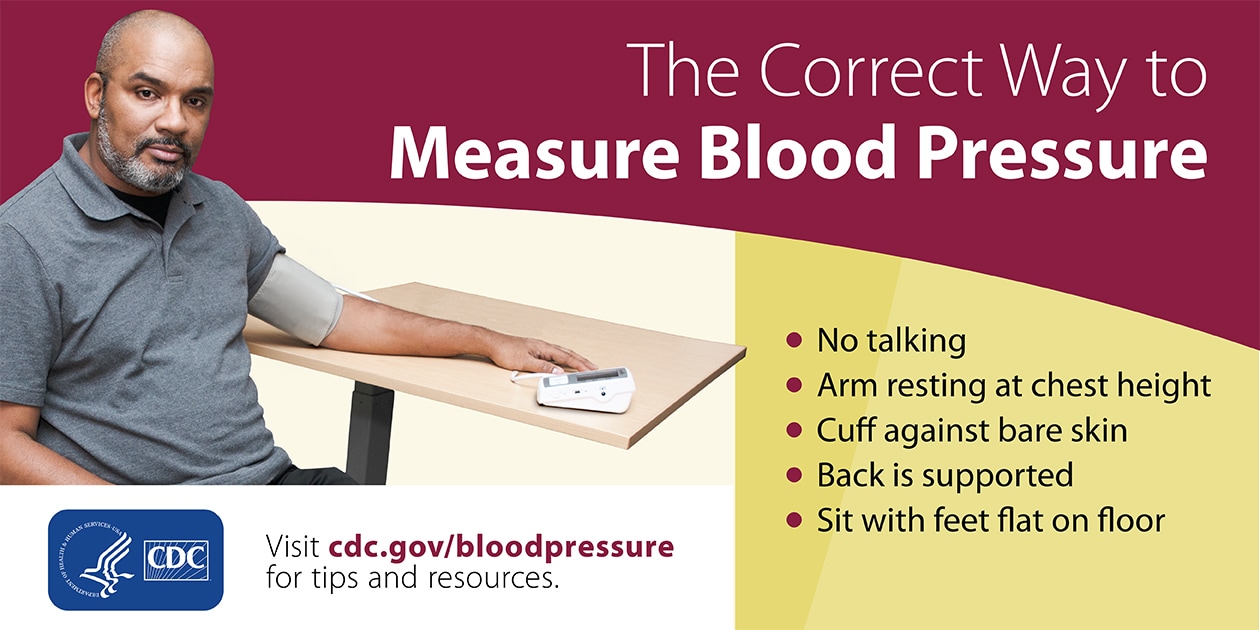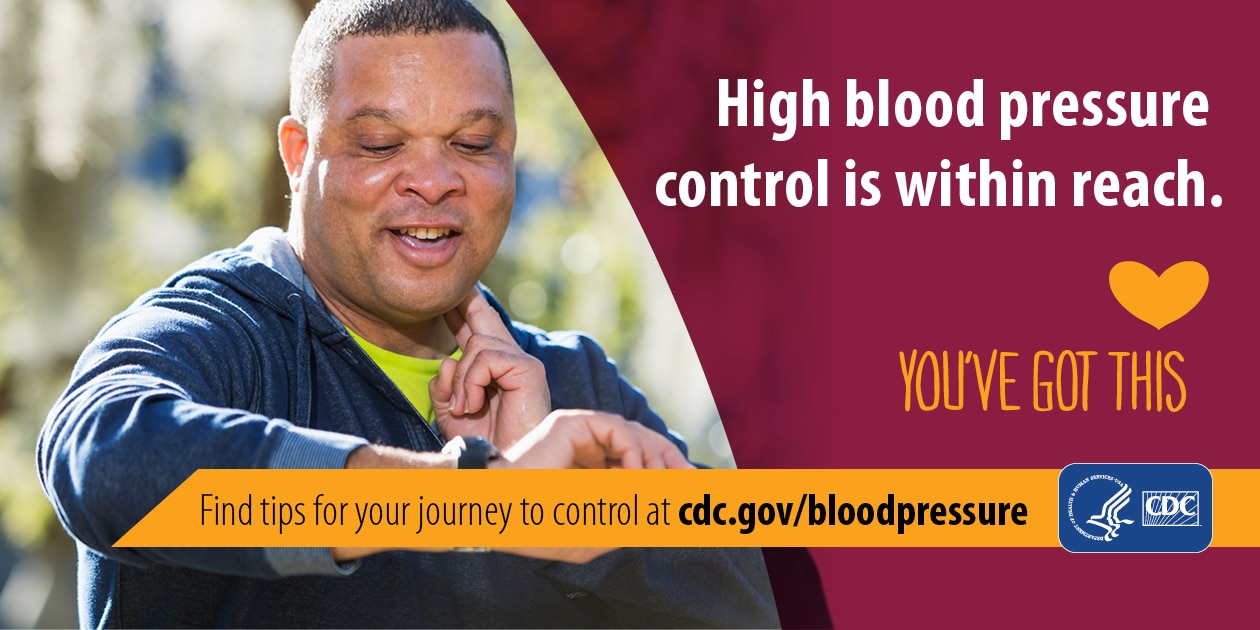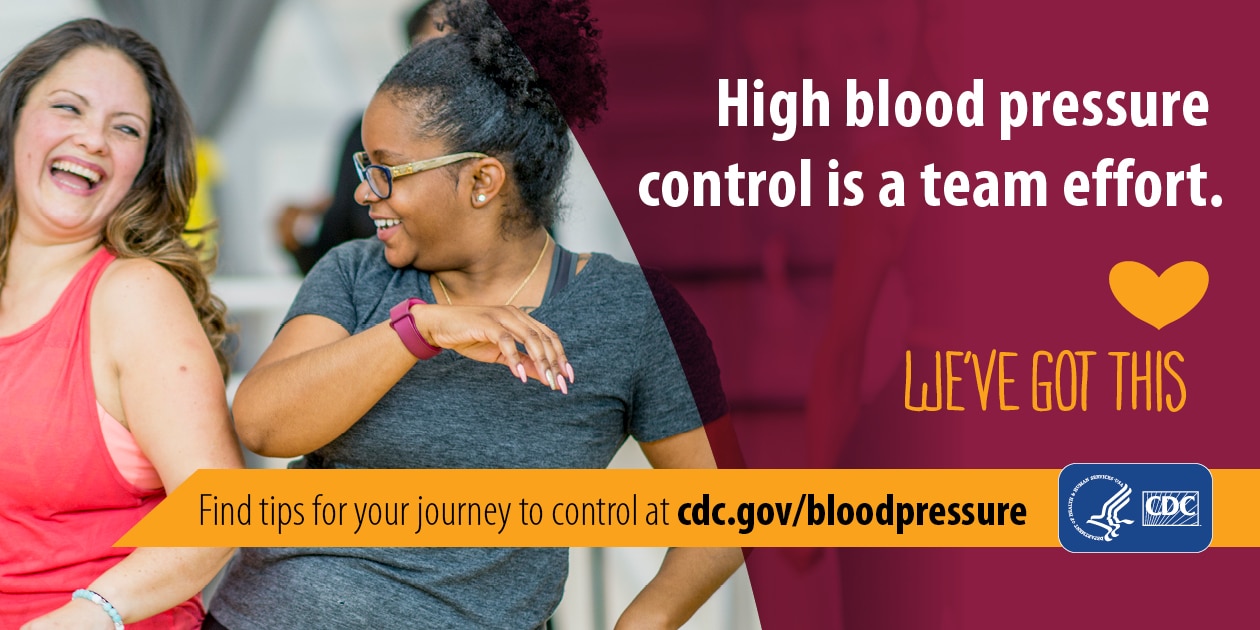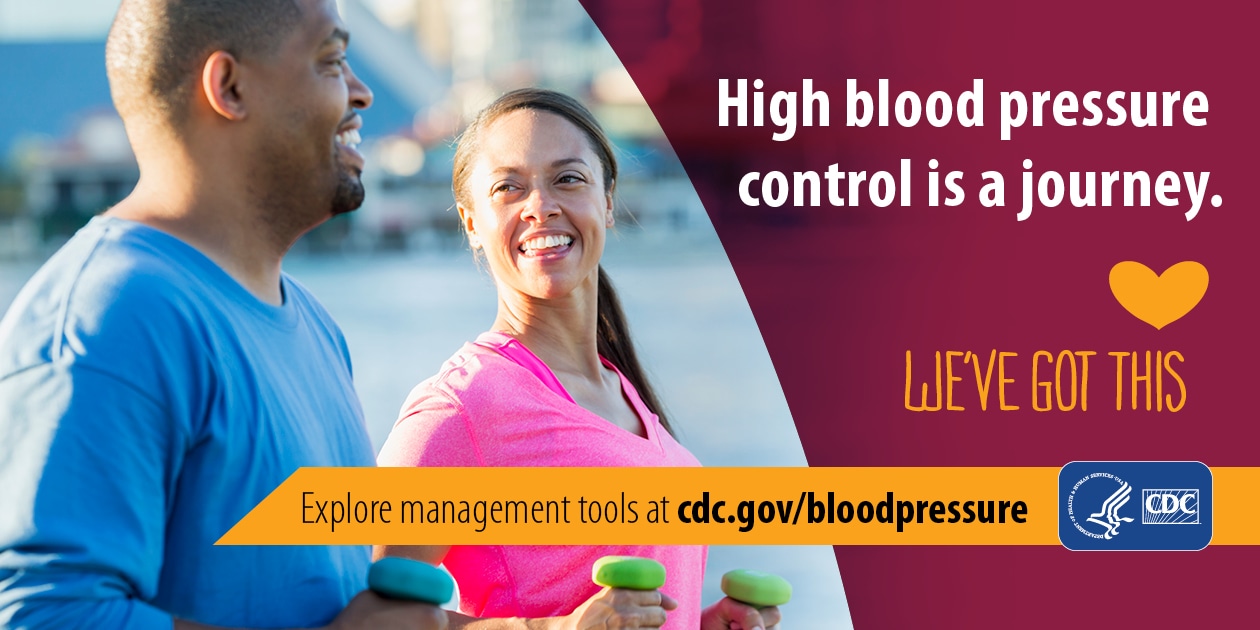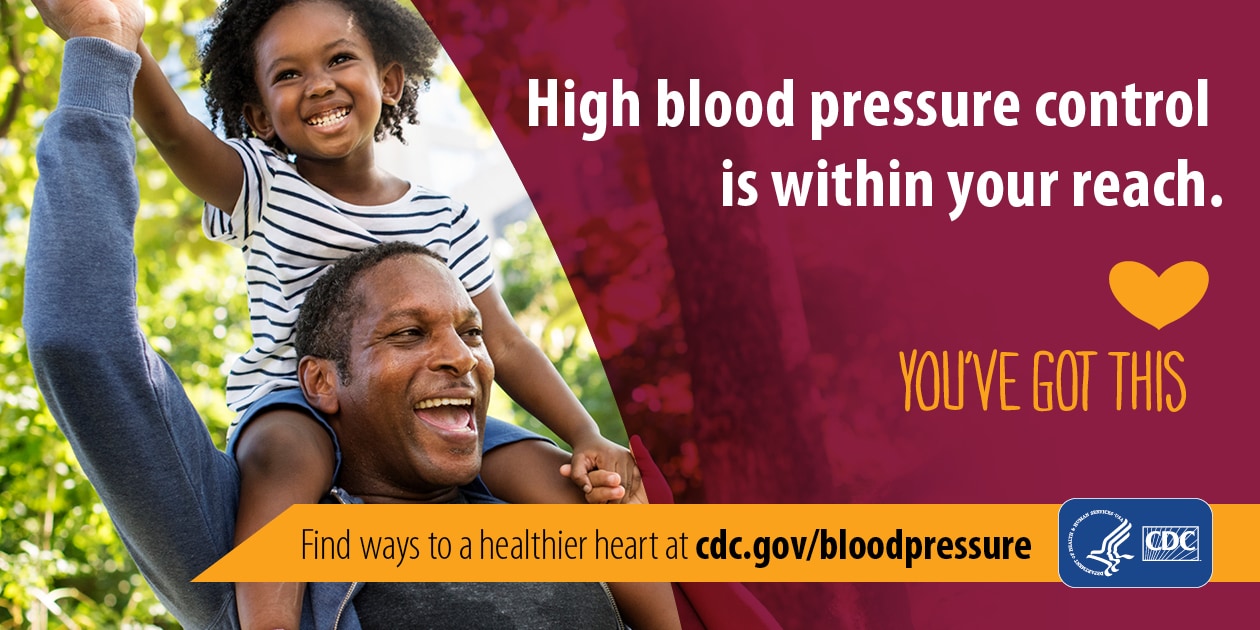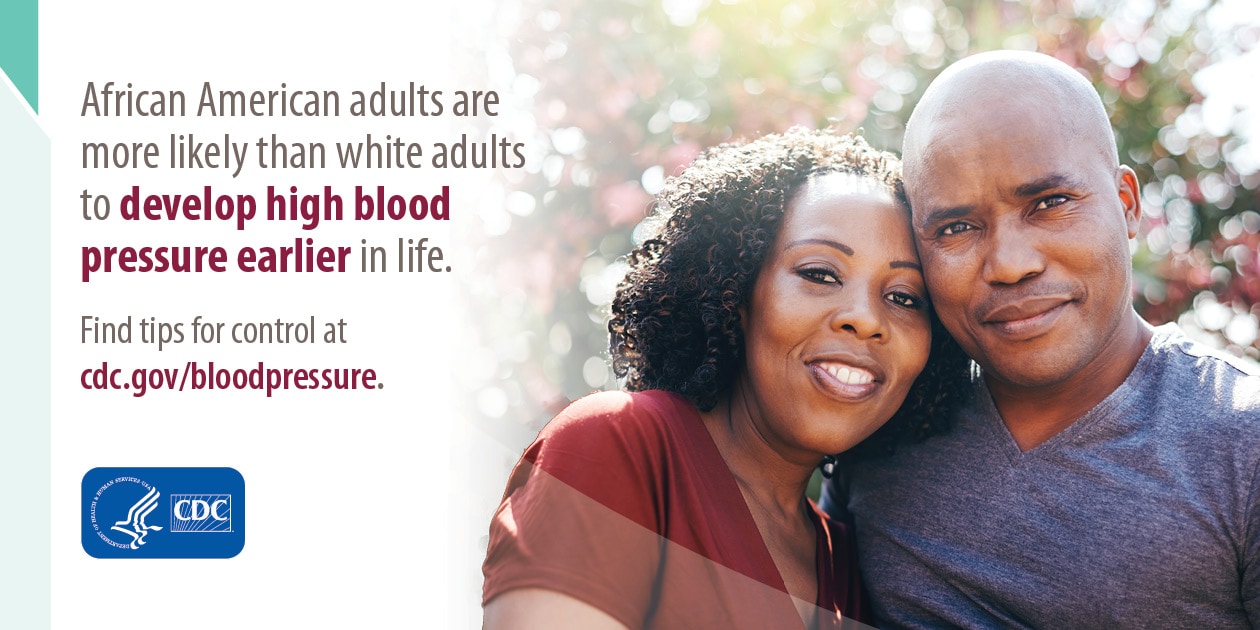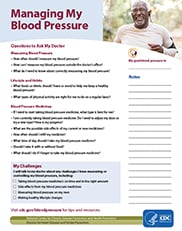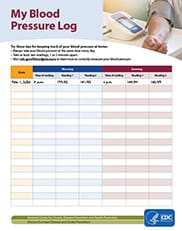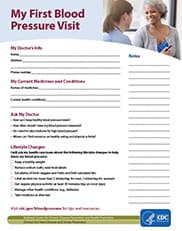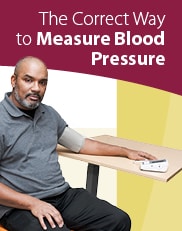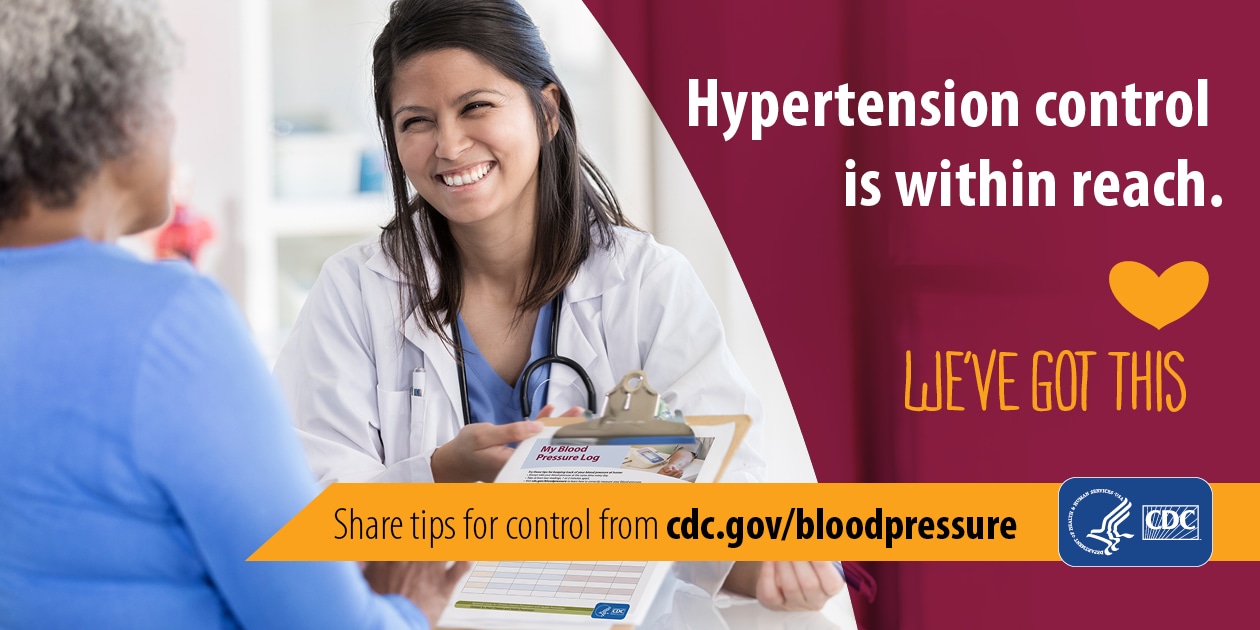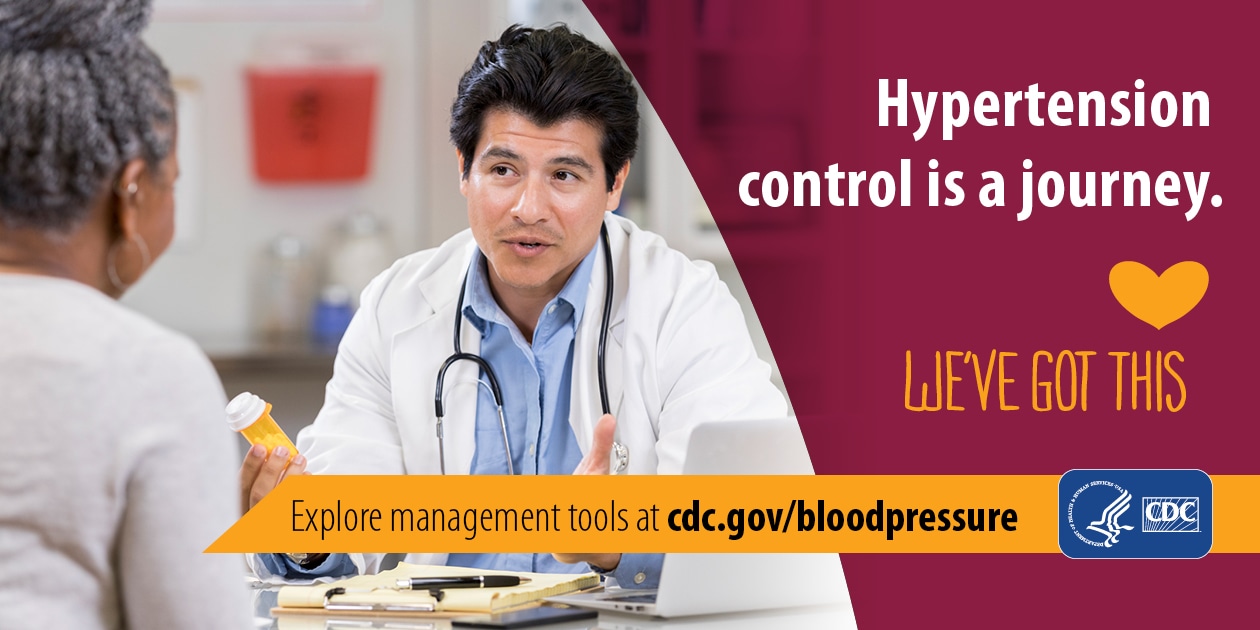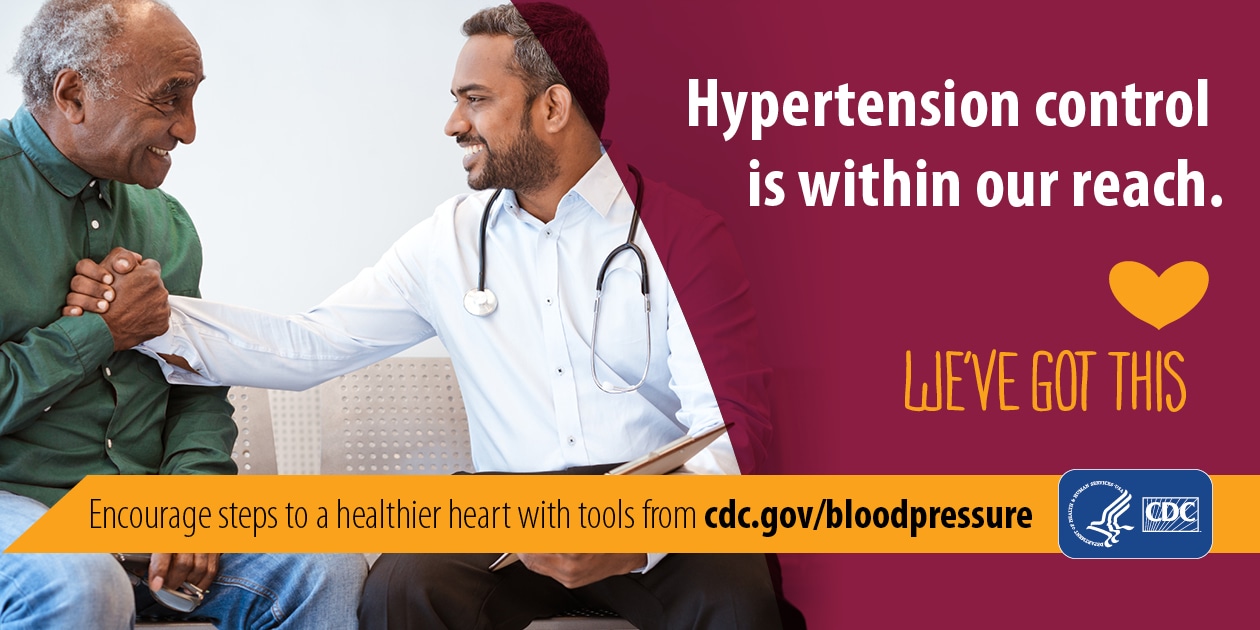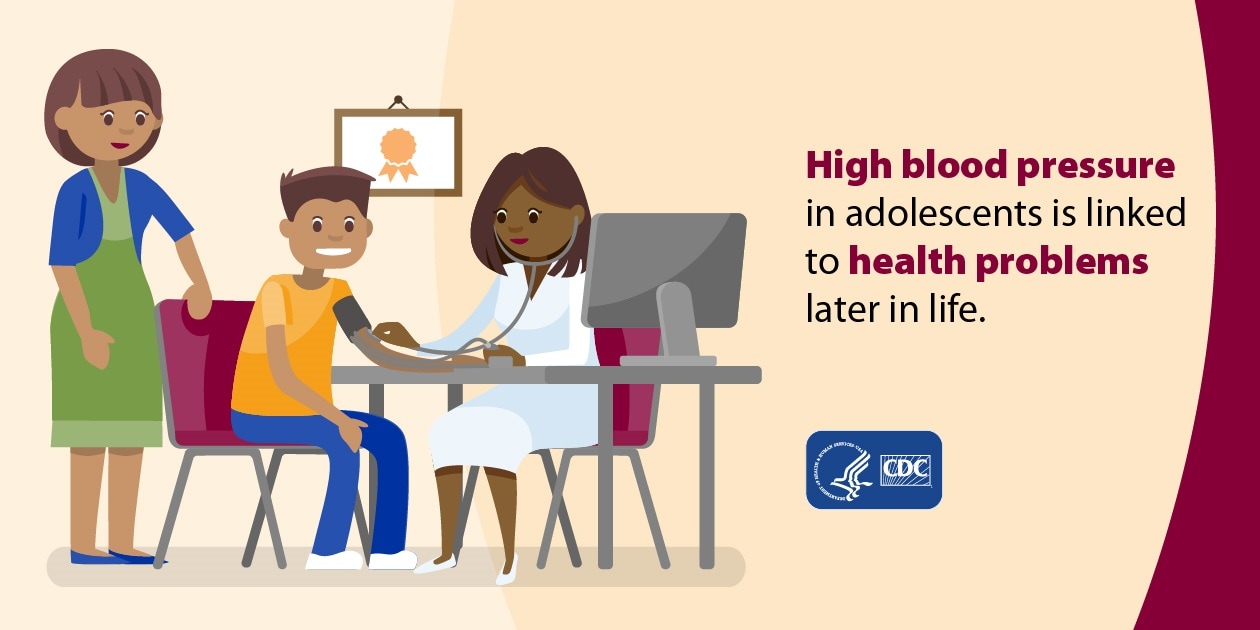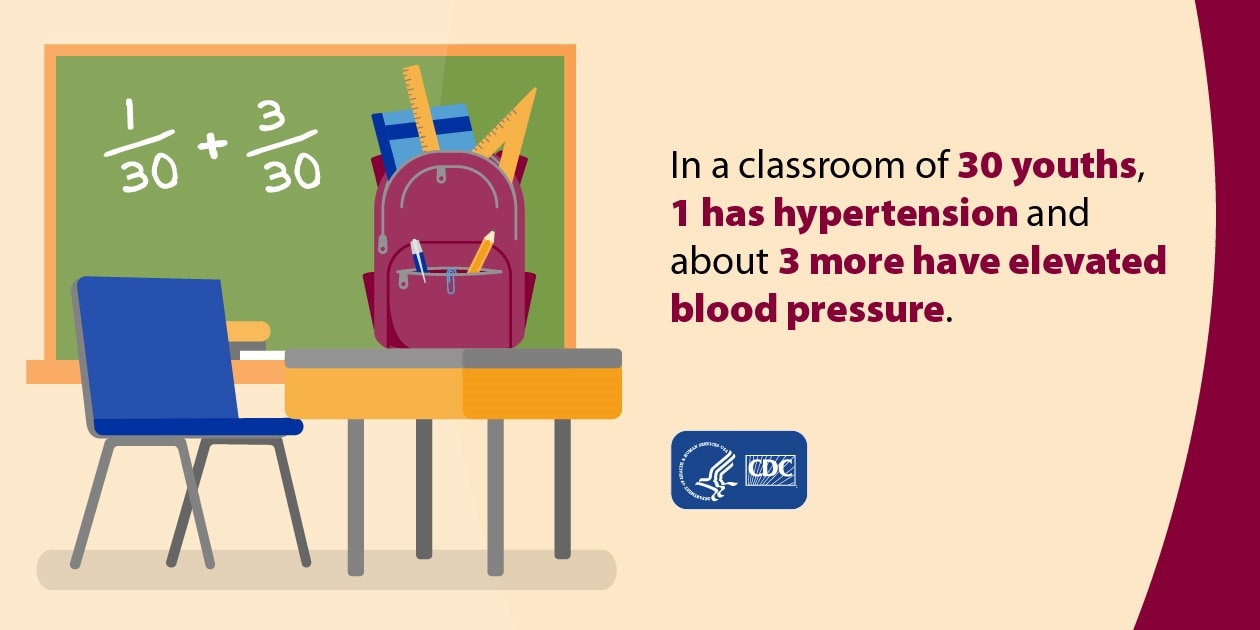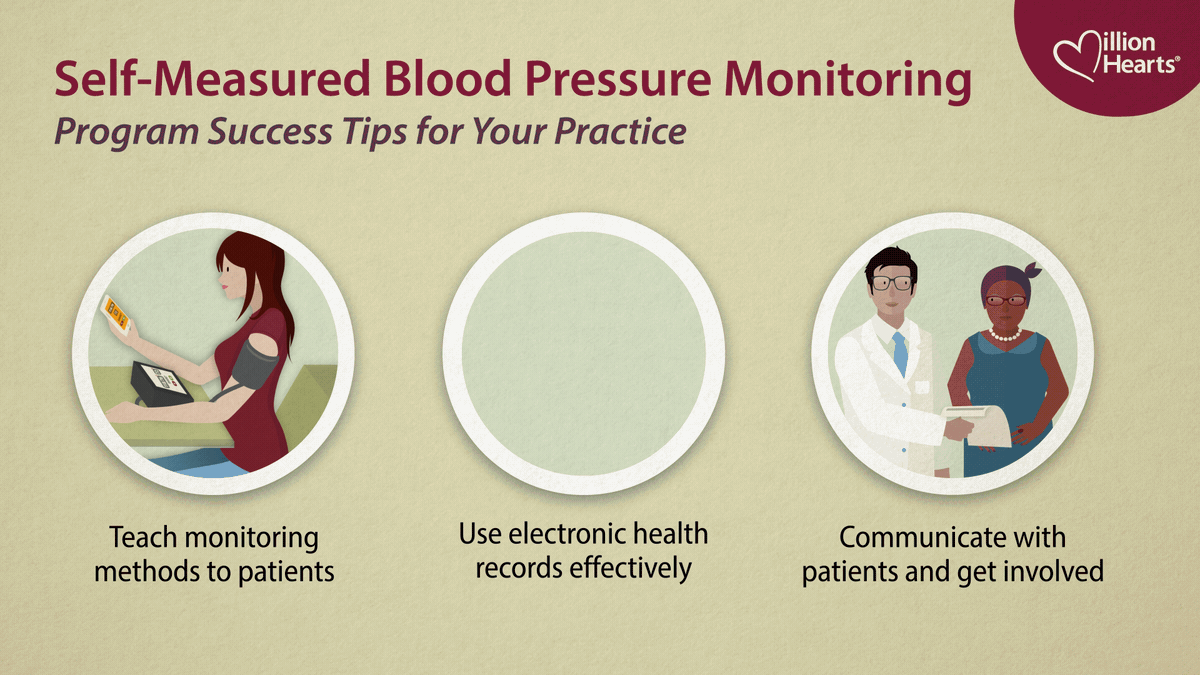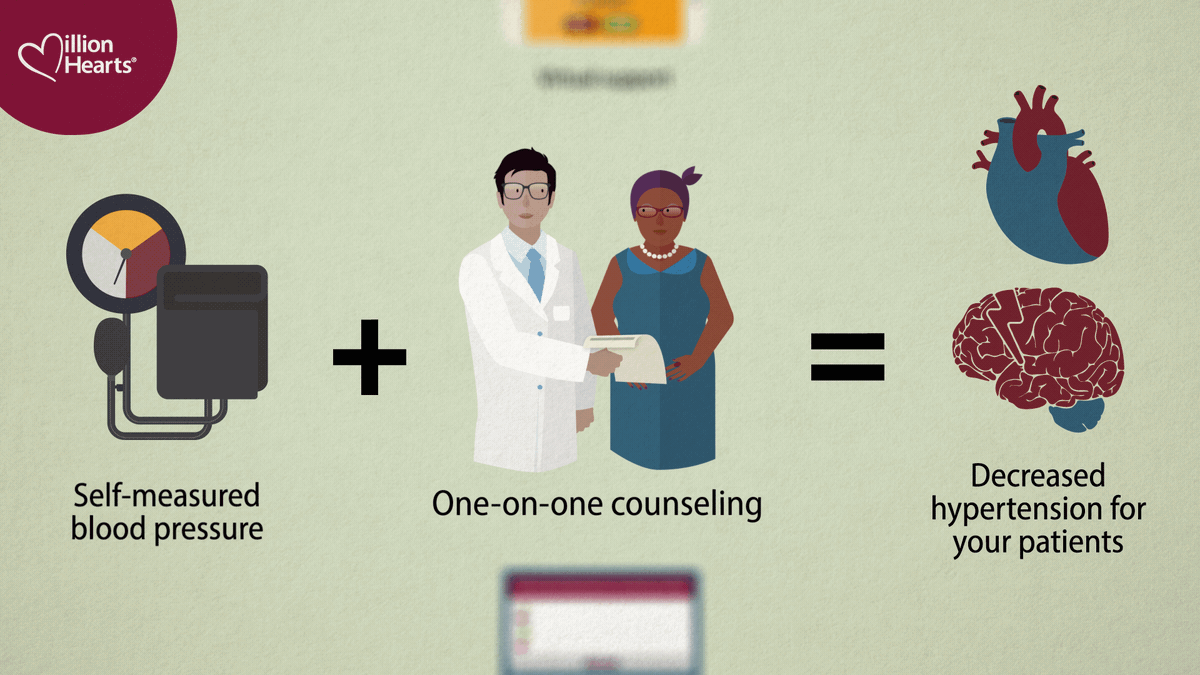Hypertension Communications Kit
With the support of health professionals like you, the Division for Heart Disease and Stroke Prevention (DHDSP) is better able to educate the public about the risks of hypertension. The social media messages, graphics, and resources below can help your networks understand the basics of hypertension, including how it increases risk for heart disease and stroke, why self-measured blood pressure (SMBP) monitoring is important, and treatment options.
Help DHDSP spread awareness by sharing these resources on your social media pages and with your colleagues.
Connect With Us
Follow @CDCHeart_Stroke and @MillionHeartsUS on Twitter to share our hypertension tweets directly on your pages.
Share hypertension posts and resources directly from Million Hearts® on Facebook.
Connect with other health care professionals and share the latest in hypertension control from the Million Hearts® LinkedIn page.
Self-measured blood pressure monitoring, combined with regular checkups, can help people control hypertension. Download the Million Hearts [tag] action guide for public health professionals and bring blood pressure control to your community. http://bit.ly/2jF0WvX
Regularly monitoring your blood pressure, with support from your health care team, can help lower your risk for heart disease and stroke. You can check your blood pressure at the doctor’s office, at a pharmacy, or even at home! Learn more from CDC [tag]. http://bit.ly/2iFB6U5
High blood pressure is often called the silent killer. You might not have symptoms, but it’s a leading risk factor for heart disease and stroke. Monitoring your own blood pressure at home can help you keep your blood pressure under control. http://bit.ly/2iFB6U5
Taking your medicines as directed can be confusing, but it’s an important way to help manage your blood pressure. This Million Hearts [tag] video has tips to help you stick to the ’script. http://bit.ly/2QG2gLG
Hypertension in youth is linked to health problems later in life. Encourage parents to help kids and teens keep a healthy weight and normal blood pressure—here’s how. http://bit.ly/2NMRjG
Many people need to take medicine to help keep their blood pressure at healthy levels. Learn more about how these medicines work, their risks, and possible side effects. http://bit.ly/2RL9ZKD
Accurate measurement of blood pressure is essential to diagnosing and managing hypertension. Help your patients measure their blood pressure accurately at home. The American Medical Association [tag] shares a list of blood pressure monitors that have been independently validated for clinical accuracy. www.validateBP.org
#PublicHealth professionals can help promote self-measured #BloodPressure monitoring programs in health systems with 5 action steps. Learn how from @MillionHeartsUS. http://bit.ly/2jF0WvX
Encourage #patients to find ways to monitor their #BloodPressure outside of the doctor’s office—like at the pharmacy or at home. @CDCHeart_Stroke has tools to help patients get started. http://bit.ly/2iFB6U5
One major cause of ineffective #BloodPressure control? A lack of #medication adherence. Watch this @MillionHeartsUS video on how to help patients take their medicines as directed. http://bit.ly/2jFGHia
#Hypertension in kids and teens is linked to health problems later in life. Encourage #parents to help youth keep a healthy weight and normal blood pressure—here’s how. http://bit.ly/2NMRjGI
Many people need to take #medicine to help keep their #BloodPressure at healthy levels. Learn more about how these medicines work, their risks, and possible side effects. http://bit.ly/2RL9ZKD
Help patients measure their #BloodPressure accurately at home. Check out this @AmerMedicalAssn list of blood pressure monitors that have been independently validated for clinical accuracy. www.validateBP.org
| Observance | Date | Hashtag |
|---|---|---|
| World Heart Day | September 29, 2022 | #WorldHeartDay |
| World Stroke Day | October 29, 2022 | #WorldStrokeDay |
| American Heart Month | February 2023 | #HeartMonth |
| High Blood Pressure Education Month | May 2023 | |
| National Stroke Awareness Month | May 2023 | #StrokeMonth |
| World Hypertension Day | May 17, 2023 | #WorldHypertensionDay |
Help Patients Take Blood Pressure Medicines as Directed
Published February 1, 2017
One major cause of ineffective blood pressure control is a lack of medication adherence, or patients not taking their medications at the right time and in the right amount. But health professionals can help! Watch this animated video to learn how.
Tips for Taking Blood Pressure Medicines As Directed
Published March 3, 2017
One major cause of ineffective blood pressure control is not taking medications at the right time and in the right amount. But patients and their loved ones can take steps to stick to the ‘script! Share this animated video to learn how.
Quizzes
- Blood Pressure 101: Know the Basics
Share this quiz to help your networks brush up on their blood pressure basics. - Do You Know How to Measure Your Blood Pressure?
Do your patients know how to measure their blood pressure? Share this quiz.
Additional Resources
- Taking Control of My Blood Pressure: Natalia’s Story
This video from the National Association of Community Health Centers (NACHC) features D’Angelo, a Community Health Center patient. Listen as he explains how he has taken control of his blood pressure with the help of self-measured blood pressure monitoring (SMBP) at Whitney M. Young, Jr. Health Center. - Taking Control of My Blood Pressure: D’Angelo’s Story
This video from the National Association of Community Health Centers (NACHC) features Natalia, a Community Health Center patient. Listen as she explains how she has taken control of her blood pressure with the help of self-measured blood pressure monitoring (SMBP) and support from the YMCA and Samuel U. Rodgers Health Center. - High Blood Pressure in Kids and Teens
High blood pressure in youth is linked to health problems later in life. Learn what parents can do to help. - How to Use Your Home Blood Pressure Monitor
This video from the National Association of Community Health Centers will teach patients how to use a home blood pressure monitor accurately.
- Surgeon General’s Call to Action to Control Hypertension
Read this report and incorporate actionable strategies into your work and community to help reduce hypertension. - COVID-19 and Cardiovascular Disease Partner Toolkit
Use these tools to encourage individuals to continue seeking cardiovascular care during the COVID-19 pandemic. - Self-Measured Blood Pressure Training
This educational video from the American Medical Association and American Heart Association helps train health care teams and patients on how to properly self-measure blood pressure. - Million Hearts® Hypertension Control Champions
Read success stories and lessons learned from health professionals, systems, and practices that achieved success in blood pressure control. - SMBP Tools and Resources
Find fact sheets, videos, and success stories on SMBP.
